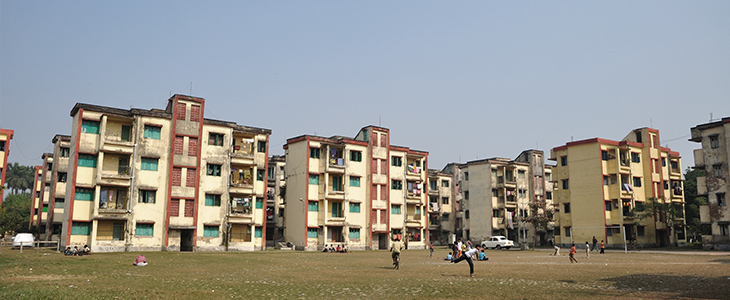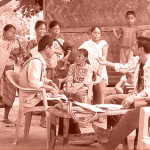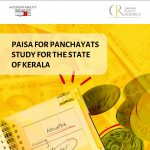
Rural Housing Wars in Karnataka; the Empire Strikes Back and Gets Shot Down
10 March 2017
This is the third part of the Raghu Bytes series on ‘Avoiding Accountability’.
The genesis of the war between the Members of Legislative Assemblies (MLAs) and the local governments (Gram Panchayats) on the issue of selection of beneficiaries for rural housing programmes, goes back to October 2003. The Panchayat Raj Act of Karnataka was amended to strengthen Grama Sabhas – assemblies of the people – and left no room for doubt that the latter had the final word in identification and selection of beneficiaries and prioritization of beneficiary lists. Section 3(3)(b) of the amended Act provided that Ward Sabhas would identify the most eligible persons from its area for beneficiary-oriented schemes on the basis of previously stated out criteria and prepare lists of eligible beneficiaries in order of priority and forward it to the Grama Panchayat. These lists were then to be placed by the Grama Panchayat before the Grama Sabha, which under Section 3A (3) (c) would consider the Ward Sabha lists and prepare the final lists of eligible beneficiaries in order of priority. For good measure, the law also provided that once such detailed beneficiary lists were prepared by the Grama Sabha; they could not be changed by any higher authority. By positioning the Grama Sabha as the sole platform that protects the right of every citizen to participate in decision making, a major step towards realising self-governance was achieved.
It was significant that these amendments were passed unanimously by the State Assembly after detailed scrutiny by an all-party Select Committee. So, the MLAs knew very well what they were doing.
However, through a process of slow cerebration by which MLAs realized they were shortchanged, the Government turned the clock back in April 2007 by amending Sections 3(3) (b) and 3A (3) (c), stating that if the Grama Panchayat fails to discharge its duties in respect of housing schemes or programmes, then a committee headed by the member of the legislative assembly of the constituency shall select the beneficiaries from the list prepared by the Grama Panchayat.
At one stroke, the law made the local legislator the final arbiter over decisions of the Grama Sabha. The proviso to the law was dangerously open ended. Who was to decide that a Grama Panchayat has failed to discharge its duties? Who would constitute the committee? What was the need to specifically mention housing schemes? Would this proviso be expanded to take away all the powers of the Grama Sabha in respect of all Schemes of the Government? What makes the MLAs or government official, who are far removed from village citizens, better able to decide who should benefit from a scheme, that the rural voter who knows intimately every resident of her/his village?
The amendment of the law, piloted hurriedly through the legislature and passed unanimously without discussion, triggered widespread protests across the State, by NGOs and Panchayat elected representatives. The local press front- paged the protests in a big way. That in turn influenced the Governor, to whom the State government had sent the law for final approval. Delegations of aggrieved NGOs and Panchayat representatives petitioned the Governor to return the law to the Government for reconsideration, which he did with alacrity.
By then, other political development escalated in the government. The coalition that ruled in the State broke down, and Presidents rule was imposed. The amendment fell by the wayside.
While those who protested against the amendment gloated at the unlikely victory, some of us who looked ahead were sure that the matter would not end here. Any new government would also push for such amendments. The power of patronage that MLAs would gain by distributing houses to the poor was too precious to be relinquished.
It was a friend running an NGO who came up with a good idea on how to prevent further such incursions into the powers of the Grama Sabha. ‘We must propagate the notion that anybody who dares to diminish the powers of the Grama Sabha is destined to lose power’, he said, in all seriousness. ‘Its bad vaastu in case you touch the Panchayat Raj Act’. He wagged his finger at me threateningly. Vaastu is, loosely put, an Indian system of Feng Shui.
I agreed with him heartily. Government should also have a Tantrik appointed as Deputy Secretary in the Panchayat Raj Department, fully equipped with Voodoo dolls of individual MLAs and stick pins into them in case they cast covetous eyes on the powers of the Grama Sabha, I suggested.





